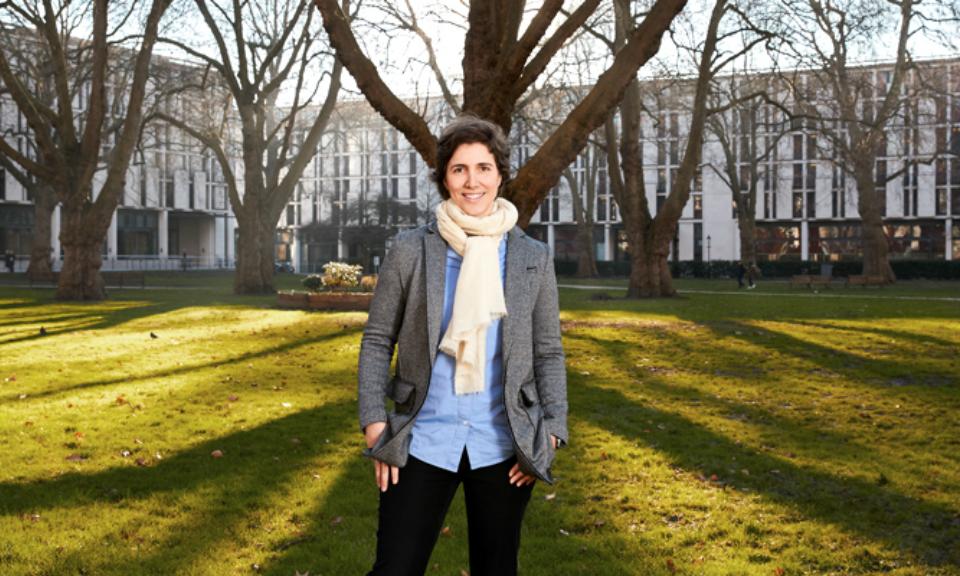
Written by
Published
Category
Key topics
Dr Mirabelle Muûls, Assistant Professor of Economics at the Grantham Institute for Climate Change and Imperial Business School, explains that we need to understand the drivers of energy consumption before we can reduce it
Emissions associated with energy use significantly increase the risk of climate change. With most energy users still relying on fossil fuels, we need to understand the drivers of energy consumption before we can reduce it. This means understanding not only how manufacturers and other firms use energy, but also how domestic users use it, and why.
The UK has recently implemented regulations aimed at reducing domestic energy use. One such measure is to have smart meters and an in-home display (IHD) installed in every home by 2020. The underlying idea is that information about their energy use can motivate people to change their behaviour. Energy companies need to make changes to meet these new regulations, but how can they do so without sacrificing profit? How can they meet customers’ demands in a changing industry where customers expect more than just energy provision? And how can we make sure that these changes will have the desired effect?
My colleagues and I at Imperial Business School and the Grantham Institute are working with Scottish Power and ONZO to investigate the nuances of encouraging energy saving in UK households. This research fuses electrical engineering expertise with business know-how, financed by Innovate UK. We are currently exploring if the latest ONZO feedback mobile app has a comparable or stronger effect on energy consumption than an IHD. Retailers can obtain derogation from installing IHDs if they can show evidence that their proposed alternative is equally effective. We will compare a randomly selected sample of Scottish Power customers with only the ONZO app to a control group with only an IHD. This study will involve approximately 50,000 households throughout the UK.
Consumer behaviour
Several key factors influence how people decide to consume energy, and these can be a combination of peer pressure (what are my friends and neighbours doing?), information (how much energy am I actually using?), and costs. Previous studies carried out by Imperial suggest that people can be motivated by their peers, either through competition or comparative cost, but that information is key: there is no peer pressure if you don’t know how much you’re consuming in comparison, and you can’t assess cost implications without usage data.
Studies have shown that, with feedback, individual households can be convinced to reduce their energy consumption. Our question is focused on what information is most effective, and how we can best deliver that information. Namely, can Scottish Power use ONZOs application-based information system to deliver tailored usage information straight to customers, rather than using an IHD installed in their home? There are several benefits to this: IHDs are expensive to purchase and install, and they use additional energy to produce and run. Most people have screens already, so do we need another item that adds energy use and costs? An app also increases the possibilities for information type and delivery. You could get a message directly to your phone or tablet reminding you that you’ve left the AC on, or that this month’s electricity use is much higher than last month’s. It’s these direct messages that can help change behaviour immediately, rather than waiting for a bill once a quarter and not realising how much electricity you’ve used.
Energy is a strange type of good. When you buy bread, you know the cost at the time of purchase, but you might only see energy-related costs once a year, and therefore not think about it each time you turn off the light or turn on a washing machine. People often don’t realise that there are easy ways to reduce their bill. Poorer households might even choose actions that they think are saving money, but are actually having the opposite effect. For example, turning heating on high for a short period to warm up the house on a weekend can use more energy than keeping it at a consistent temperature throughout the day or week. Providing people with information in an easily accessible way can help reduce their bill, and help reduce overall energy use.
However, there is also evidence that some forms of feedback could be counterproductive. For example, a message stating that it costs £6 a year to leave your DVD player on standby might not be particularly motivating to the average consumer – so, on balance, messages need to be tailored.
Energy companies
Until now, providers had no incentive to make people consume less. Energy providers wanted people to consume more for profit, and politically there was no motivation to change. Recently, however, there has been a shift. Society expects environmental consideration, legislators have ensured customers can switch companies easily, technology has improved, and more industry competition has meant that energy companies must rethink how they embrace the digital age to retain customers. For energy providers, this is a multifaceted question involving costs, competition, CSR, policy, customer loyalty and customer welfare.
Innovative business models incorporating usage feedback and personalised service are addressing this issue, whilst conforming to societal and legal requirements. New and existing companies are bringing technology to the forefront, such as ONZO’s app, but providing this level of information on energy use is unprecedented. It’s important to investigate not only if an app is as effective as an IHD, but also the type and frequency of information which is most effective at changing behaviour, how this can affect customer loyalty, and whether providing this depth of information can affect customer welfare – do they want to be bothered with such information?
It is crucial to understand which aspects of feedback are key in driving real behavioural change. Understanding what motivates people helps the energy supplier provide the best service. It allows the customer to get the best value and, most importantly, encourages less energy consumption overall. On the path to a smart energy system, consumer behaviour is key.
Imperial is proud to be a part of this relationship with ONZO and Scottish Power. The trial will be completed by autumn 2017, and we hope that the results will benefit providers, their customers and ultimately the environment.


